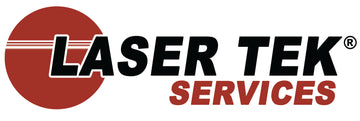An audit is important to monitor business expenses, keep track on the budget, and check the gains and losses. Accountants and accounting clerks are the most dependable and reliable workers to handle these activities. And in so doing, a costly expenditure is expected.
Page volume:
Accountants have specialized skills that help small businesses. They are responsible for payroll processing, accounts payable and receivable, taxes, liquidations, and other financial areas of a company. In order to properly perform the tasks, volumes of graphs, statements, and reports are printed. This is the reason why multifunction printers are a necessity to this kind of office environment. Procuring audit trails and copies of transactions are made easy through their print, scan, copy, and fax features. And with this kind of equipment close at hand, office workers will not hesitate to take advantage over its features. In a day, a sizeable number of pages are expected to yield from the equipment which in turn causes a setback.
Ink and toner cartridges:
Printer consumables come in hefty price tags, especially those bearing the original brand. Although alternatives such as toner refills and remanufactured cartridges are now made available, extensive printing activities deplete supplies in a much faster rate. On the average, a standard yield cartridge prints approximately 200 pages of paper in full page. If a multifunction printer is used with a number of employees allowed to handle the equipment, a significant number of cartridges will be consumed.
Electricity:
Machines require electricity to function. The continuous need for printing, scanning, copying, and faxing along with other office electronics do not help conserve electricity at all. Good thing, small businesses are now aware of energy-efficient products and machines. The practice of going for this kind of equipment tones down a significant rate in electricity consumption.
Printing problems:
As mentioned, the accounting department is a big paper and printer user. With volumes of physical documents printed on a daily basis, this could lead to various printing problems which contribute to additional expenses. Large printing volumes also mean long printing queues. Even with networks and pools of computers and printers available, this only hike up electricity consumption, time, and paper use. Printing machine failures also cause delays and setbacks in operation and projects. A few minutes of delay can waste energy, supplies, and productivity.
All these factors when added up will detail the high operation costs of maintaining an accounting department. However, there are many solutions that could reduce printing expenses and encourage a greener office operation at the same time. Buying energy-efficient multifunction printer, recycling waste papers, digitalize documents, and using web2print technologies significantly help save budget.
A Business without an Internal Accounting Department
Small business owners such as retailers prefer to do the work on their own. It is their belief that doing so will eliminate the hefty cost of maintaining an accounting department. However, without an internal accounting department, other professional services are contracted which chops off a considerable amount of the company's budget. Professional services include external accounting, consulting, IT, financial, and legal to do the necessary documentations.
Maintaining an accounting department or choosing otherwise has advantages and disadvantages. It is up to the business owners which option is more beneficial.





